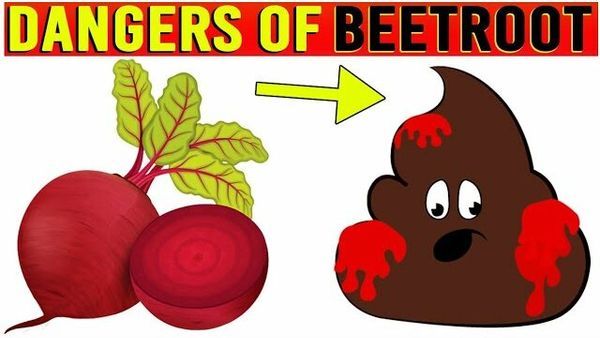
Beetroot is a true nutritional powerhouse packed with vitamins, minerals, and antioxidants. It offers an array of health benefits, but it’s essential to take caution and consider some potential downsides, particularly for those in the 45 – 65 age range. Whether you’re already a beet lover or thinking about adding it to your meals, here are a few key points to keep in mind.
Beetroot contains oxalates, which can contribute to the formation of kidney stones, especially for individuals prone to them. If you have experienced kidney stones in the past, it’s best to consume beets in moderation. Consulting with your healthcare professional will help you determine the right amount for you.
Beets are known to help lower blood pressure due to their nitrate content. However, if you are already taking medication for high blood pressure, consuming excess amounts of beets may cause a significant drop in blood pressure, leading to dizziness or even fainting. It is crucial to consult your doctor to manage your beet intake and avoid any unexpected effects.
One intriguing side effect of eating beetroot is beeturia, where your urine or stool may turn pink or reddish. Although surprising, rest assured that this is harmless. It’s always good to be aware and not be alarmed if you encounter this unexpected transformation!
Beets are high in fiber, which can cause bloating, gas, or stomach cramps in individuals with a sensitive digestive system. To avoid any discomfort, it’s important to listen to your body and enjoy beets in moderation to prevent any mishaps with your stomach.
While beets have a low glycemic index, they naturally contain sugar. If you have diabetes, consuming large quantities of beets can cause a spike in blood sugar levels. It’s crucial to monitor your beet intake and maintain a balance with other healthy foods to effectively manage your blood sugar levels.
Although uncommon, some individuals may have allergic reactions to beetroot, such as itching, hives, or swelling. If you notice any allergic reactions after eating beets, it’s best to avoid them completely. Prioritize your health and seek professional advice if necessary.
As beets are high in oxalates, they may interfere with calcium absorption in the body over time. This can potentially impact bone health if not balanced with other calcium-rich foods. Incorporating a variety of calcium sources into your diet will help you maintain strong and healthy bones.
Undoubtedly, beetroot is a nutritious vegetable with numerous benefits. However, moderation is key when it comes to enjoying beets. If you have any underlying health conditions, it’s always wise to consult a healthcare professional before making significant changes to your diet. Embrace the goodness of beets, savor them mindfully, and pair them with a balanced array of other healthy foods. Your body will thank you!



